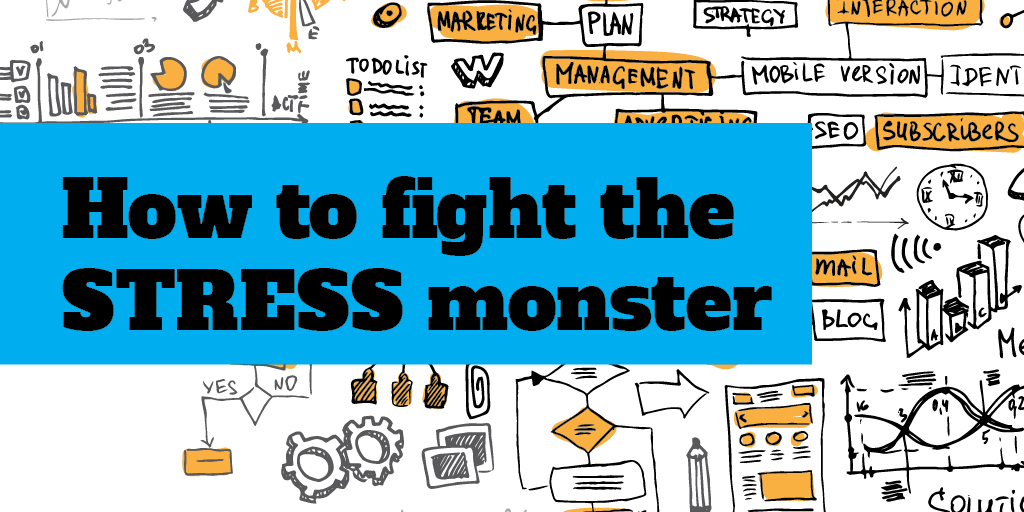How to fight the stress monster

There is not one person in the world who hasn't experienced some sort of stress in their lifetime. With small amounts of stress, it can help you feel more awake, alert and concentrated. However, according to an article by Health Canada Mental titled “HealthCoping with Stress”, stress can be a risk factor for heart disease, mental illness, weight loss and gain and decrease your body's immune system's functioning. For these reasons, it is important to take precautions and know what will cause your body stress and how to avoid it. The Interrobang came up with a few tips on how to you minimize and get through stressful moments.
Time Management
Time management is an important concept that is closely related to motivation and procrastination. Setting aside time for certain tasks and completing them, decreases the chance of things being pushed to the last minute, causing stress. Biting the bullet and starting things earlier will pay off in the long run.
Sleep
Sleep is the best investment you can make for your body. Lack of sleep can cause agitation which can lead to impatience and not being able to think clearly. According to an article by WebMD titled “Tips to reduce stress and sleep better”, adults need seven to nine hours of sleep per night. Otherwise, it can be a vicious circle where stress can cause one to not get enough sleep, which can lead to further stress and other problem, etc.
Healthy Eating Habits
Stress can affect the way you eat, whether that be binge eating on junk food or not allotting time to make a healthy meal. You are best able tackle stress when your body's health is at full par. Healthy eating includes making sure you are getting your recommended daily serving of each food group and limiting processed foods and eating out.
Exercise
According to an article by Harvard Health titled “Exercising to relax”, regular aerobic exercise reduces the body's level of stress hormones and increases the production of endorphins, the body's natural pain killers and mood lifters. It is also a great way to establish social connections with team members and allows you to take a break from the busyness of everyday life.
Take Frequent Breaks
According to an article by Huffington Post titled “Taking Timeouts to Decrease Stress and Increase Creativity”, taking breaks are essential to decreasing stress, increasing energy and allowing time for creative productivity. Just like working out a specific muscle, it must be rested to recover to its full potential. In the same way, your brain needs a rest period which will help it work more effectively and reduce fatigue.
Don't Overload your Schedule
While spending time with friends is a good way to have some “down time”, it can also be stressful. Cramming your schedule to fit in all the events you want to go to over the weekend can leave little time for the tasks you need to get done. Setting aside small break times and prioritize what events are best to go to, will reduce the risk of exhaustion.
Invest in 'Me' Time
Having a hobby or something that helps you relax is a great way to ease your mind and give yourself a mental break. Inputting time into your schedule to do something you enjoy is restorative and allows you to shift your focus for awhile.
Get a Good Support System
If you surround yourself with people who constantly stress, it can easily rub off on you. Make sure you spend time with friends who build you up and encourage you to keep going and stay positive. Staying in touch with your family is important because they are often able to help put things into perspective.
Go Easy on the Caffeine
Although you may be tempted to have that drink of black gold, caffeine elevates your heart rate which can increase agitation and anxiety. While it does give a good boost if you are feeling tired, it can cause the jitters and if consumed too late in the evening, can make it harder to fall asleep.














